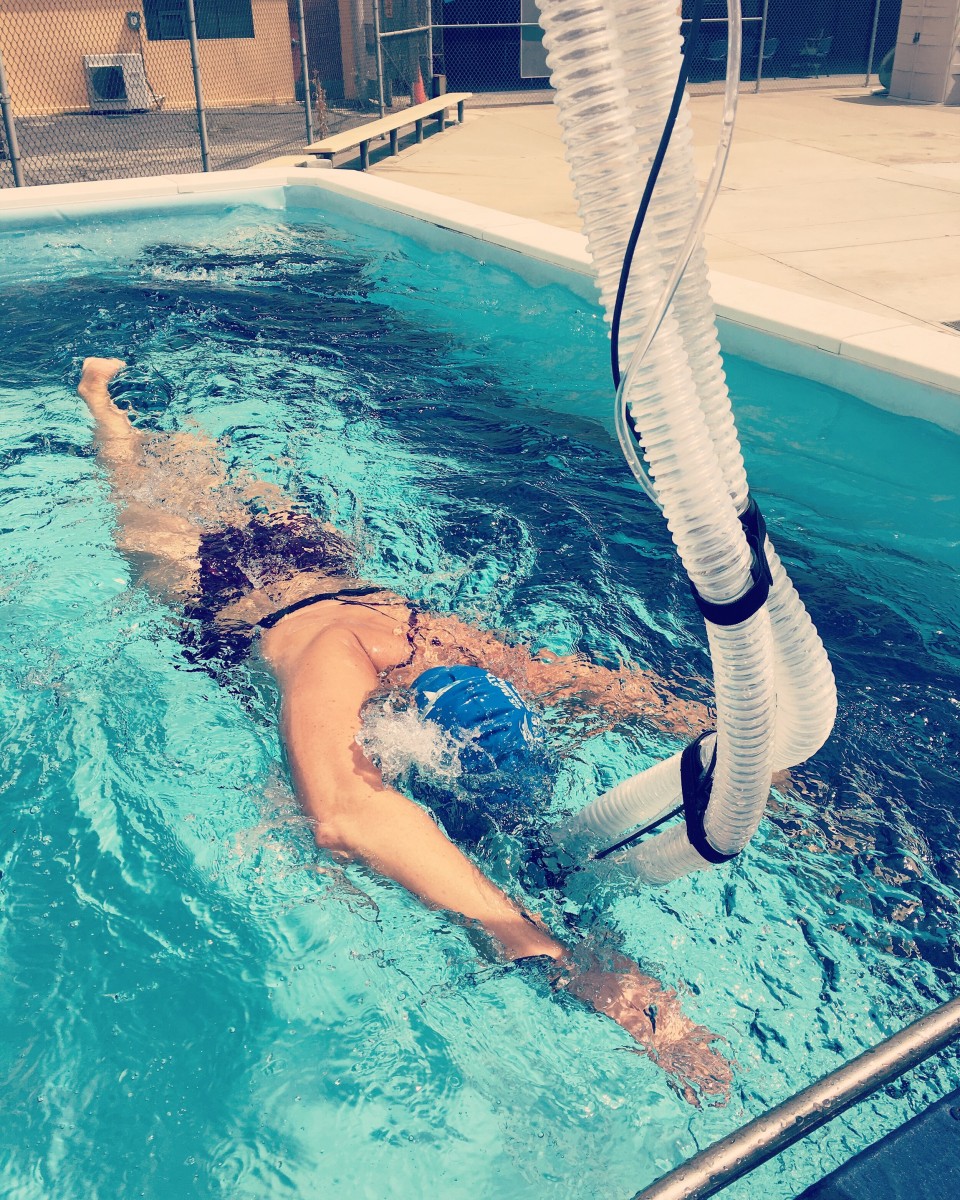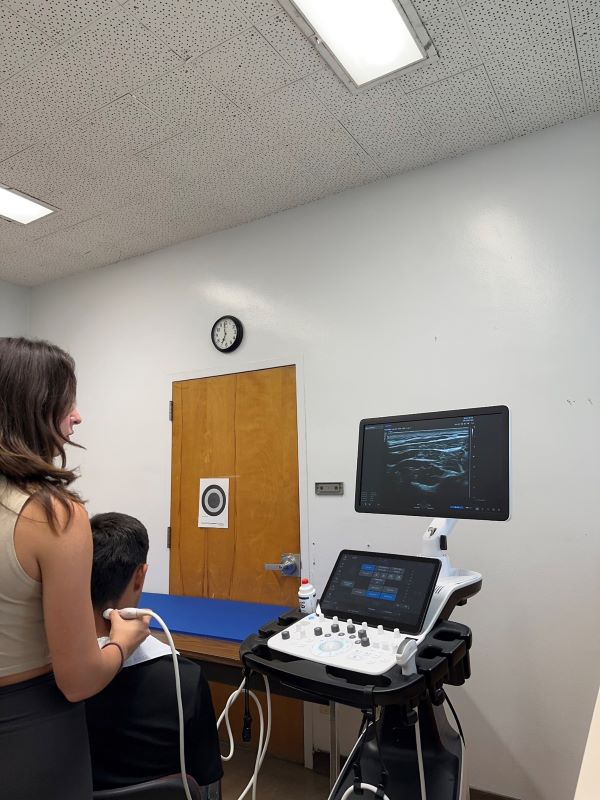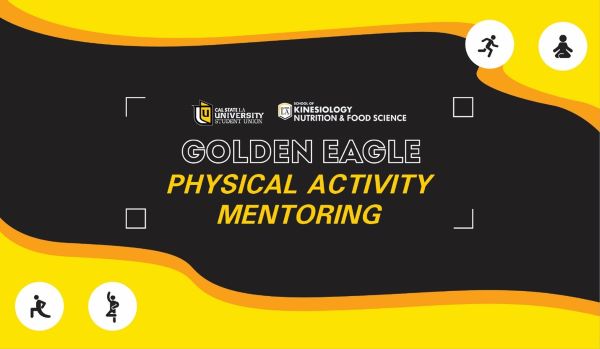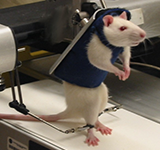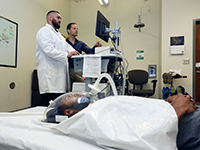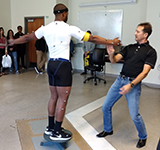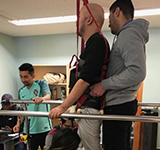Swim Performance Laboratory
This lab aims to understand the factors affecting human swimming performance across various ages and abilities. The lab has a swim flume, a 25-yard swimming pool, and a wading pool. Devices include a snorkel integrated with a metabolic cart that enables real-time measurements of oxygen consumption, substrate utilization, and economy while swimming in the flume. This lab is under the direction of Dr. George Crocker—location: PE 38 & Pool deck.
Website: www.swimperformancelab.com
Fit Friends Fundamental Movement Program
This service-learning program uses exploratory teaching approaches to help children develop (1) fundamental motor skills and perceptual-motor functioning, (2) health-related physical fitness, and (3) social and emotional competencies (SEL). Fit Friends collaborates with the Anna Bing Arnold Children’s Center and is delivered by students studying to become physical educators. These pre-service PE teachers practice, model, and provide feedback to help young learners develop SEL skills. In the process, pre-service teachers deepen their understanding and mastery of these competencies through hands-on experience. Current research examines the impact of program delivery on pre-service PE teachers’ SEL competencies to mitigate job-related stress and burnout and support longevity in the field. Programming takes place in Kinesiology’s gymnastics space with access to professional equipment, including a spring floor, a tumbling trampoline, junior-sized bars, balance beams, and various assistive mats. The program is co-directed by Dr. Sierra Cordova ([email protected]) and Dr. Robbi Beyer ([email protected]) -- Location: PE 213
Musculoskeletal Research Laboratory
Their primary objective is to investigate and understand musculoskeletal and neural adaptations in response to chronic pain, sports activity, repeated motions, and postural deviation. Lab devices include a high-tech ultrasound machine featuring shear wave elastography (capable of 700 KPa stiffness measurements), enabling insights into musculoskeletal conditions' details. Additional equipment includes ADPM wearable technology to analyze movements and gait. This wearable tech, complemented by dynamometers and algometers, ensures a comprehensive research approach. The lab is under the direction of Dr. Leila Rahnama, PT, Ph.D. – Location: PE 237.
The Cultural Sport and Exercise Psychology
The Cultural Sport and Exercise Psychology (CSEP) research lab aims to examine moving bodies and the field of kinesiology through psychological and sociocultural perspectives and to promote equity and social justice in/via kinesiology and related fields. Recent publications discuss transformative justice and cancel culture in sports, weight stigma in exercise, and critical health education. The lab promotes non-diet, weight-inclusive approaches to health and physical activity. Students are also invited to join Dr. Lee’s service-learning program, Golden Eagle Physical Activity Mentoring (GEPAM), to gain practical experiences with weight-inclusive health coaching and/or to join her research collaborative, the Weight Inclusive Research and Education (WIRED) collaborative to collaborate with scholars committed to weight-inclusive education, practice, and advocacy. This lab is under the direction of Dr. Saemi Lee - Location: PE 212B.
Spinal Plasticity Laboratory (SPL)
The SPL lab examines the effects of locomotor training in a rodent model of spinal cord injury using robotic devices. The lab houses the BART and CBART locomotor training devices. Studies include analyzing molecular and cellular changes to the nervous system that underlie the acquisition of new memories, learning, and functional behavior. This lab is under the direction of Dr. Michael Joseph – location: ASCL 123
Brain Exercise Performance Lab
The lab investigates the effects of exercise on the brain, cognition, and physical performance with a specific emphasis on exercise-induced changes in the relationship between the brain and muscles to better understand performance and chronic disease conditions. Recent studies examine the unique impacts of weightlifting and resistance training on cognitive function and muscle health. Studies measure cardiometabolic data, blood pressure, oxygenation, and brain activity during exercise and rest, providing comprehensive insights into the relationship between physical activity and overall well-being. Participation in the Brain Exercise Performance Lab offers students a unique opportunity to apply classroom-based theory to real-world research. Students are involved in every stage of the research process, from study proposals and data collection to journal club discussions and conference presentations. Many lab participants have successfully pursued advanced degrees, including prestigious PhD programs, medical and dental schools, physician assistant (PA), and doctor of physical therapy (DPT) programs. This lab is under the direction of Dr. Stefan Keslacy – location: ASCL 139. Lab motto: Work hard, play hard! Check us at: #csula_exphyslab ; #csula_sprout
Biomechanics
Current research in the biomechanics lab investigates the factors that influence force and power output from skeletal muscle. The lab houses an eight-camera Vicon motion analysis system, two AMTI force plates, and an electromyography system. The lab is under the direction of Dr. Andrew Cornwell -- Location: ASCL 110
Spinal Cord Injury Exercise Research (SCIER)
SCIER investigates how exercise like body weight-supported treadmill training can enhance motor control, functional movement, and physical fitness in persons with paralysis. The lab works in conjunction with the Locomotor Training program and the Cal State LA Mobility Center, which houses Robomedica and LiteGait locomotor training devices. Research devices include wireless electromyography to record muscle activity during therapeutic exercise. This lab is under the direction of Dr. Christine Dy. The location is the Mobility Center at the Alhambra satellite campus.
